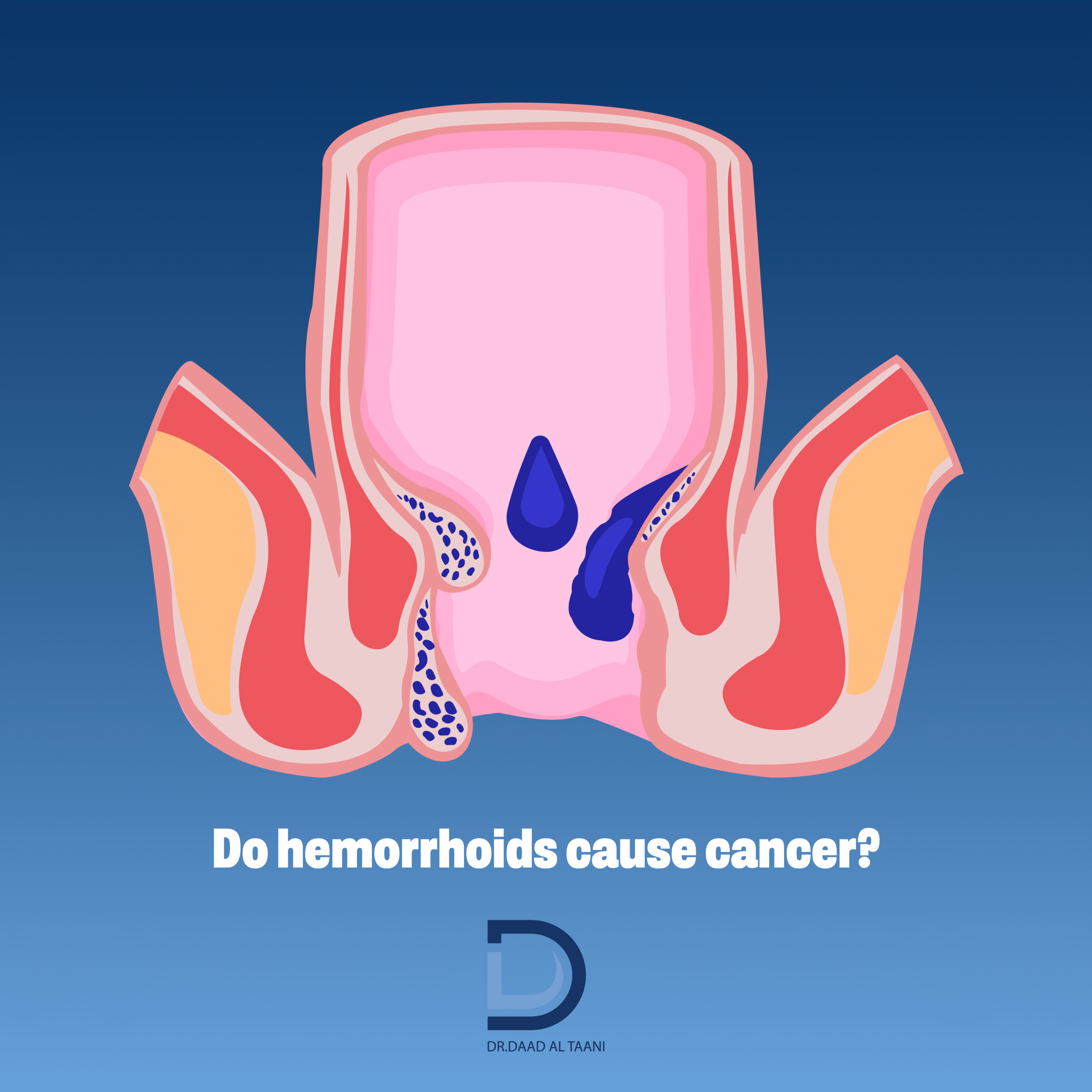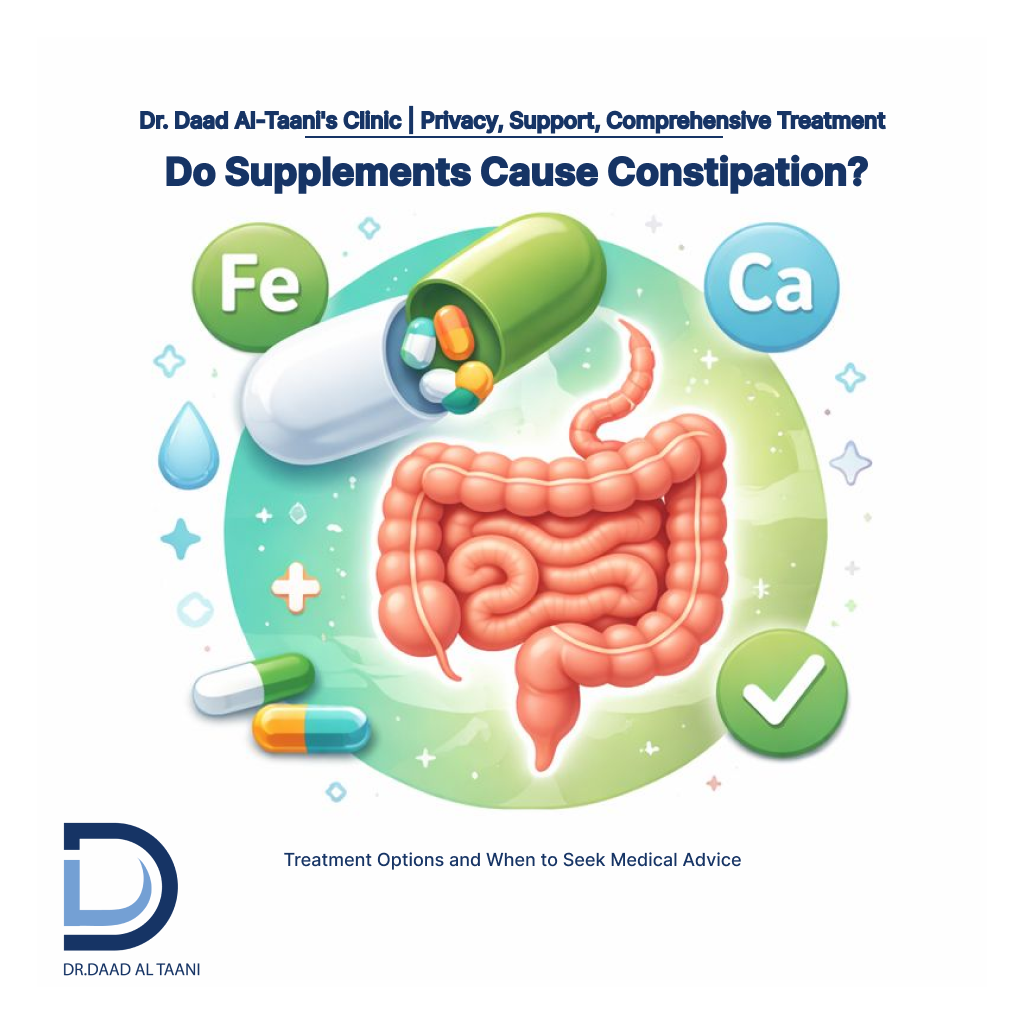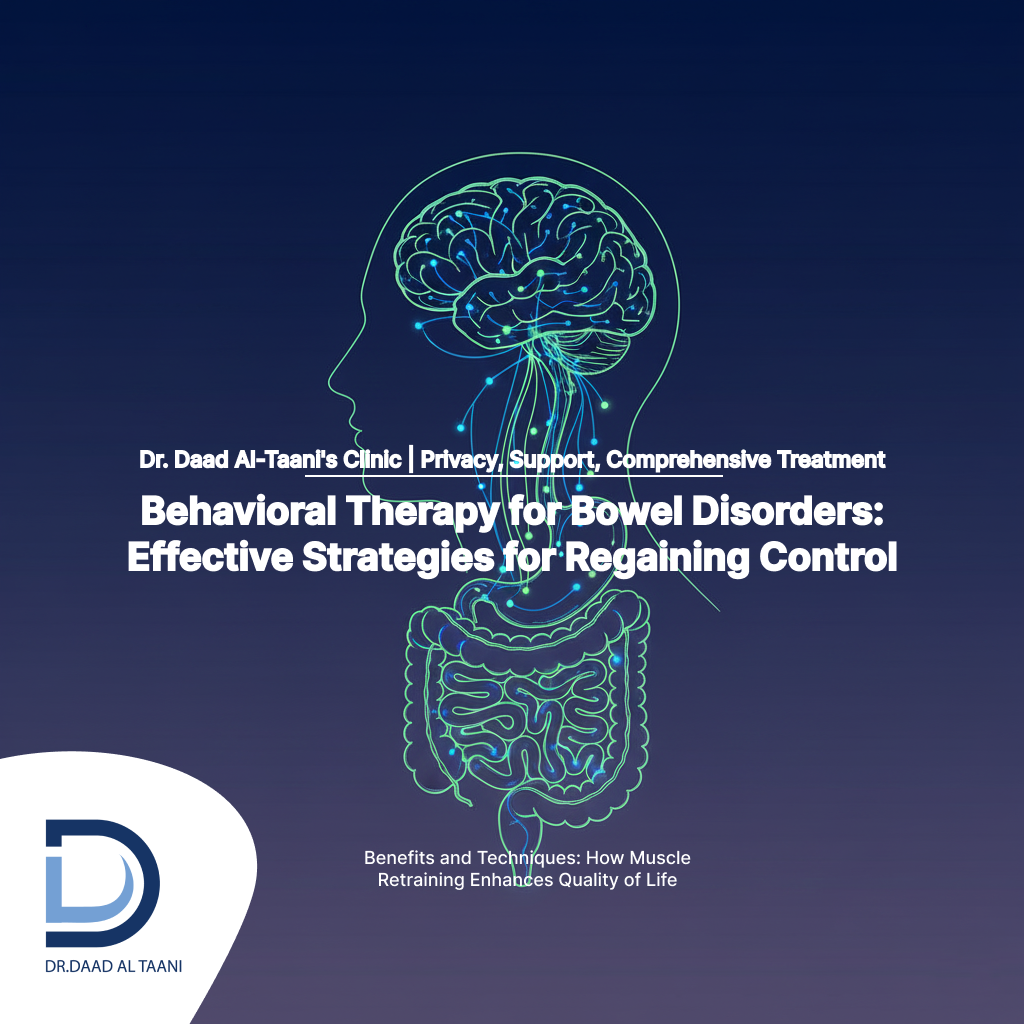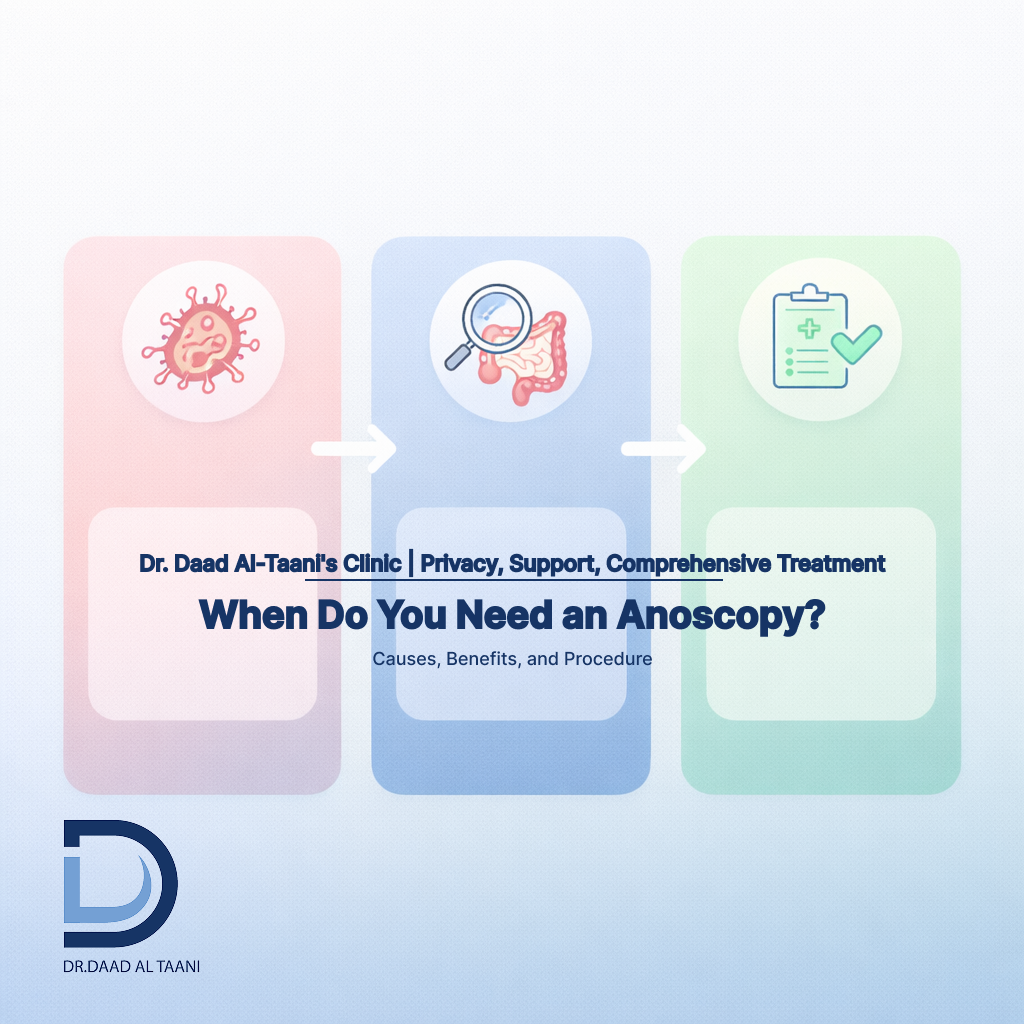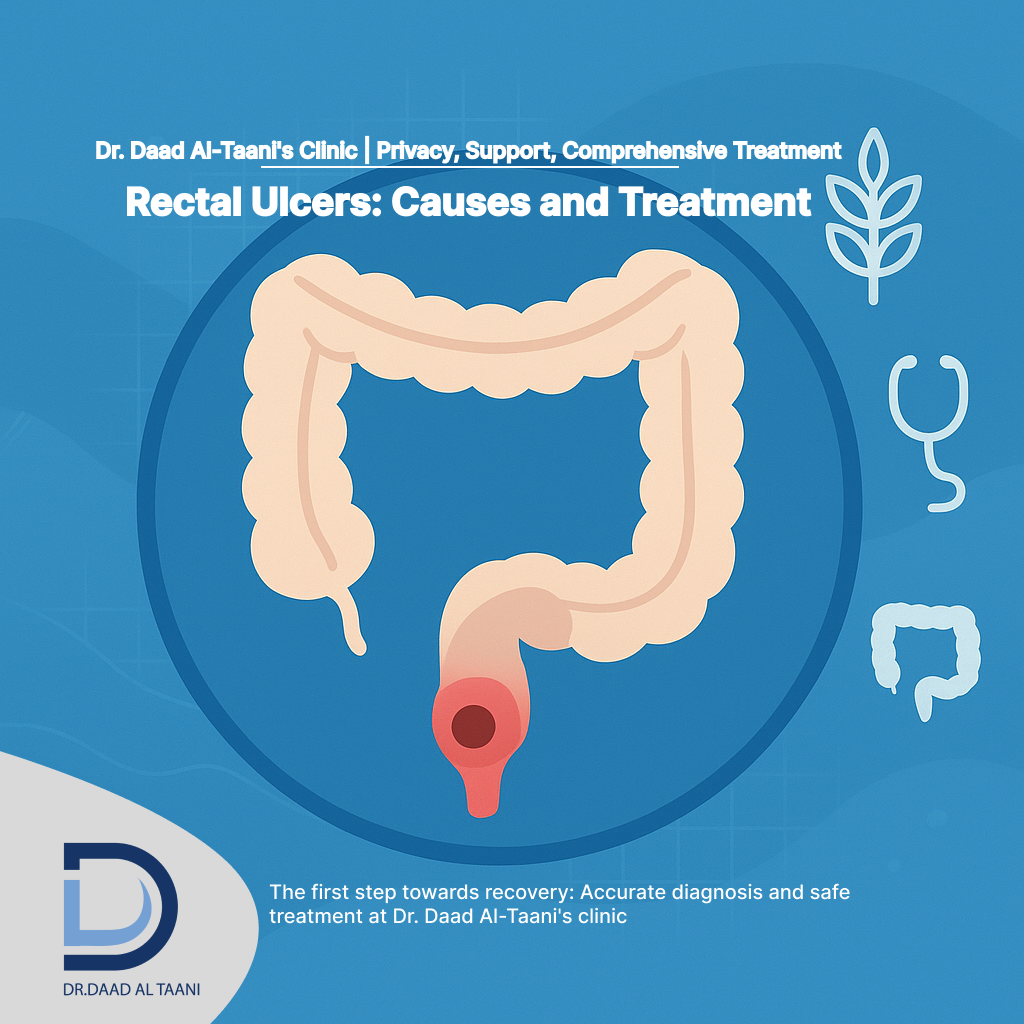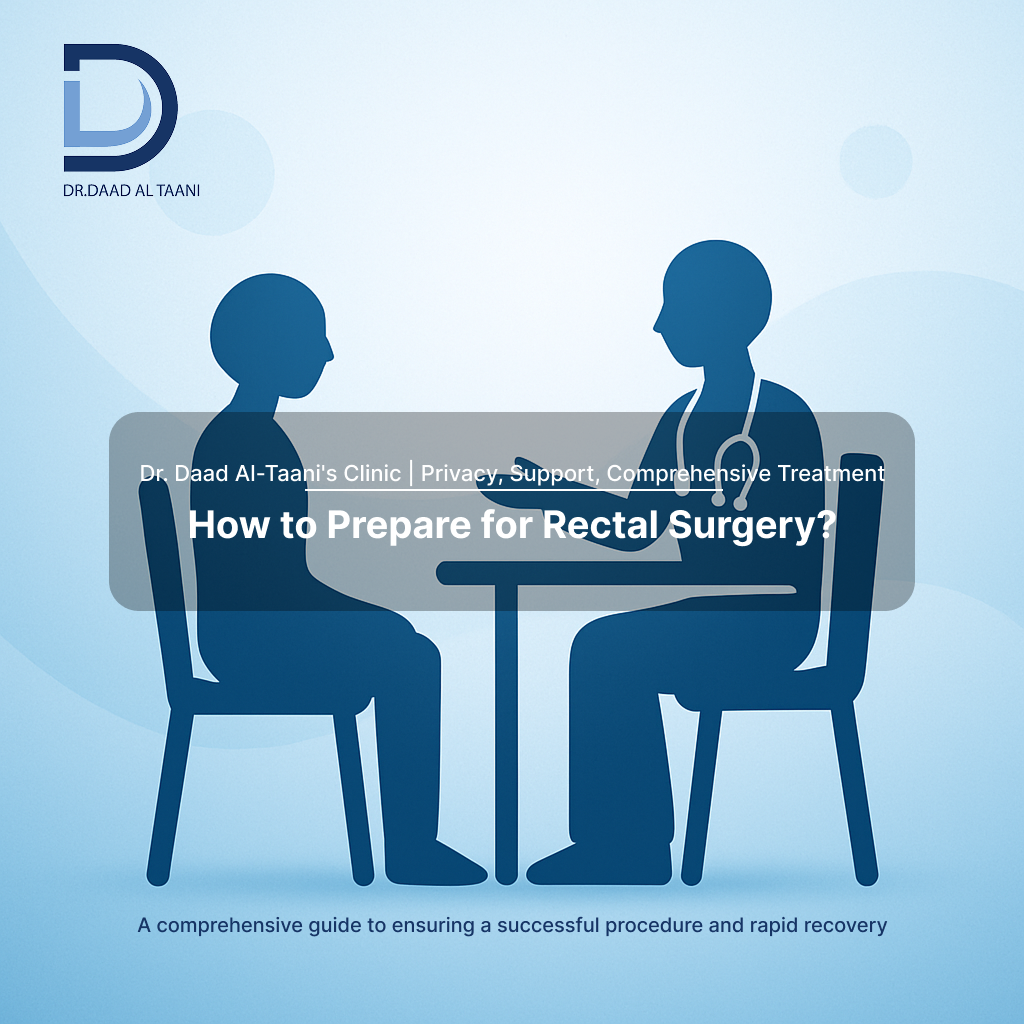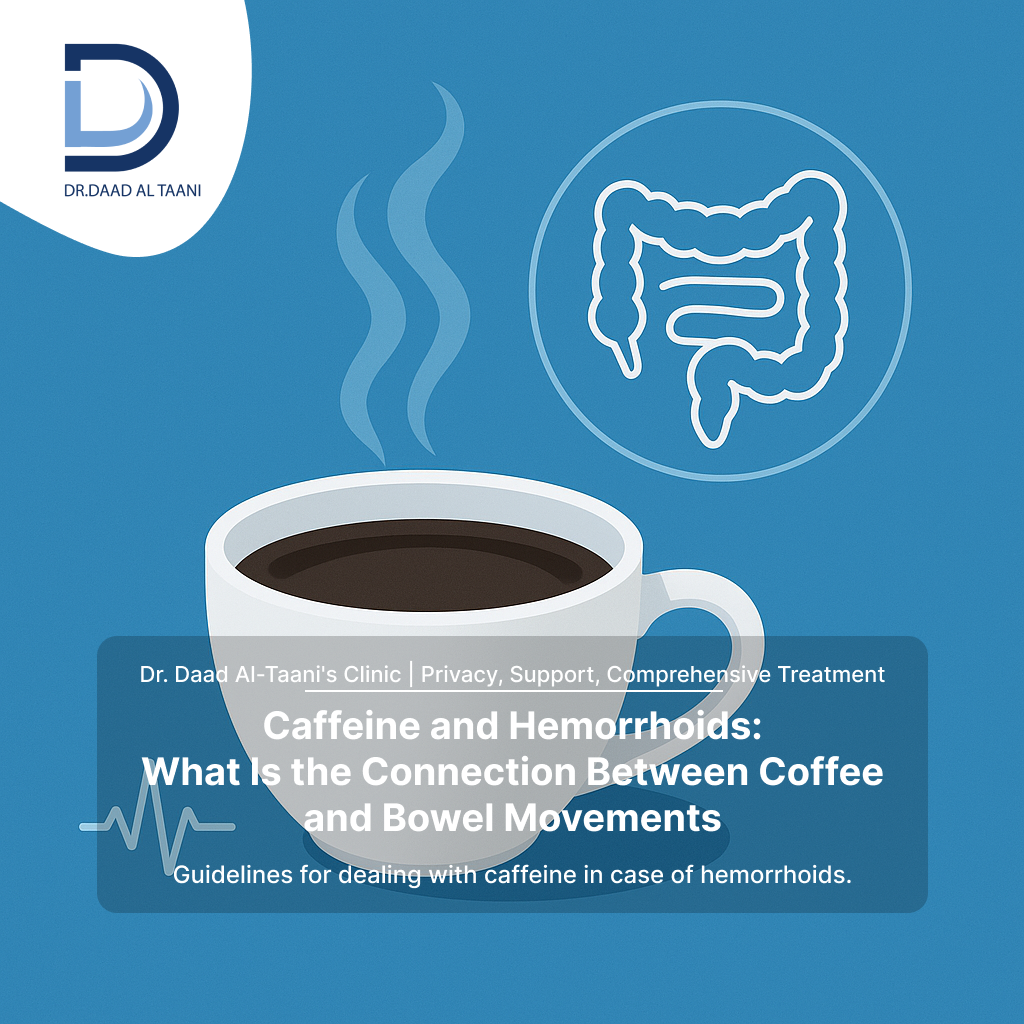Although hemorrhoids are benign and easy to treat, they often cause concern for patients, especially when symptoms such as rectal bleeding or anal masses occur.
A frequent and important question we hear at Dr. Duaa Al-Taani’s clinic is:
“Can hemorrhoids lead to cancer?”
Or,
“Do hemorrhoids increase the risk of colon or anal cancer?”
In this comprehensive article, we explore the relationship between hemorrhoids and cancer, explain how to distinguish between them, and when it’s time to see a specialist.

